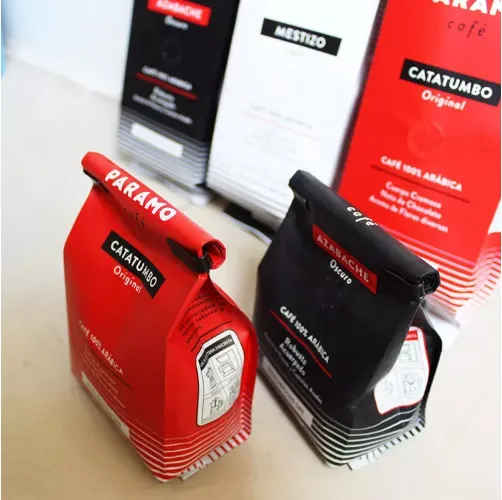- Afrikaans
- Albanian
- Amharic
- Arabic
- Armenian
- Azerbaijani
- Basque
- Belarusian
- Bengali
- Bosnian
- Bulgarian
- Catalan
- Cebuano
- chinese_simplified
- chinese_traditional
- Corsican
- Croatian
- Czech
- Danish
- Dutch
- English
- Esperanto
- Estonian
- Finnish
- French
- Frisian
- Galician
- Georgian
- German
- Greek
- Gujarati
- haitian_creole
- hausa
- hawaiian
- Hebrew
- Hindi
- Miao
- Hungarian
- Icelandic
- igbo
- Indonesian
- irish
- Italian
- Japanese
- Javanese
- Kannada
- kazakh
- Khmer
- Rwandese
- Korean
- Kurdish
- Kyrgyz
- Lao
- Latin
- Latvian
- Lithuanian
- Luxembourgish
- Macedonian
- Malgashi
- Malay
- Malayalam
- Maltese
- Maori
- Marathi
- Mongolian
- Myanmar
- Nepali
- Norwegian
- Norwegian
- Occitan
- Pashto
- Persian
- Polish
- Portuguese
- Punjabi
- Romanian
- Russian
- Samoan
- scottish-gaelic
- Serbian
- Sesotho
- Shona
- Sindhi
- Sinhala
- Slovak
- Slovenian
- Somali
- Spanish
- Sundanese
- Swahili
- Swedish
- Tagalog
- Tajik
- Tamil
- Tatar
- Telugu
- Thai
- Turkish
- Turkmen
- Ukrainian
- Urdu
- Uighur
- Uzbek
- Vietnamese
- Welsh
- Bantu
- Yiddish
- Yoruba
- Zulu
Freeze-Dried Bags for Convenient Food Storage and Long-Term Preservation Options
Exploring the World of Freeze-Dried Bags A Convenient and Innovative Solution
In recent years, the concept of freeze-drying has gained significant traction, especially in the realm of food preservation and storage. Among the innovative products resulting from this process are freeze-dried bags, which have become popular for various applications, from emergency preparedness to outdoor activities and everyday snacking. In this article, we delve into the advantages of freeze-dried bags, their applications, and their essential role in modern life.
Understanding Freeze-Drying
Freeze-drying, or lyophilization, is a preservation method that involves freezing food and then removing the moisture content under a vacuum. This process retains most of the food's original flavors, nutrients, and textures while significantly extending its shelf life. The result is lightweight, nutrient-dense food items that can be easily stored and transported, making freeze-dried products a remarkable solution for those who value convenience and quality.
Advantages of Freeze-Dried Bags
One of the most significant advantages of freeze-dried bags is their long shelf life. When adequately sealed, freeze-dried foods can last anywhere from 5 to 30 years or more, depending on the item and storage conditions. This extended shelf life is particularly beneficial for emergency preparedness. Families can stock up on freeze-dried meals to ensure they have access to nutritious food during natural disasters or other unforeseen circumstances.
Moreover, freeze-dried bags are incredibly lightweight and portable, making them a popular choice for hikers, campers, and travelers. The reduced weight compared to traditional canned or fresh foods means that adventurers can pack more provisions without the burden of heavy loads. Additionally, these bags often contain complete meals, providing outdoor enthusiasts with the energy and nutrition they need while on the go.
freeze dried bags

Versatility and Applications
Freeze-dried bags are not just for emergency kits or camping trips. They have found their way into various culinary uses, appealing to a wide range of consumers. Freeze-dried fruits, vegetables, and even meals are popular among health-conscious individuals looking for convenient snack options. The vibrant colors and flavors of freeze-dried foods can enhance a wide array of dishes, from salads and smoothies to soups and desserts.
In the realm of pet care, freeze-dried pet food has become increasingly popular. Pet owners are turning to freeze-dried options for their convenience and nutritional benefits. These foods often contain high-quality proteins and essential nutrients, ensuring that pets receive a balanced diet even when fresh options are not available.
Sustainability and Environmental Impact
In an age where sustainability is paramount, freeze-dried bags also strike a positive chord. The long shelf life of freeze-dried products reduces food waste, as less food goes spoiled compared to fresh products. When consumers choose freeze-dried options over highly processed snacks and meals, they contribute to a decrease in the demand for short-term, heavily packaged goods, thereby reducing overall waste and environmental impact.
Conclusion
As we look toward the future, freeze-dried bags represent an exciting intersection of convenience, nutrition, sustainability, and innovation. Whether for emergency preparedness, outdoor adventures, or everyday snacking, these products offer a practical solution for people seeking efficient food options without compromising on quality. With ongoing advancements in the freeze-drying process and a growing array of products available, the reach and significance of freeze-dried bags will continue to expand, meeting the diverse needs of consumers worldwide. Embracing this trend not only enhances our lifestyles but also promotes mindful eating and environmental responsibility.













